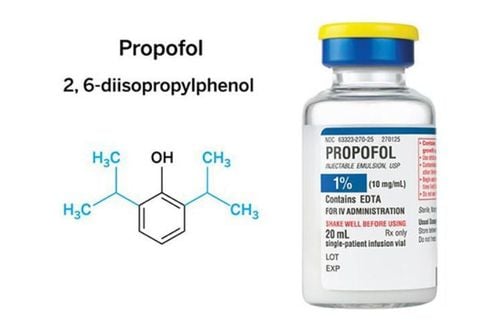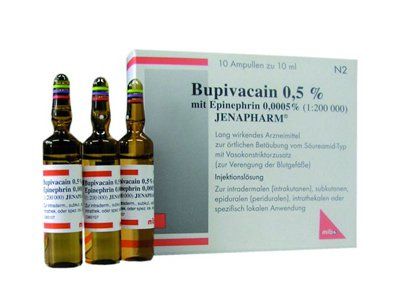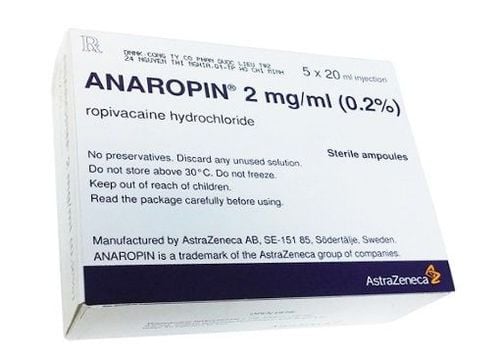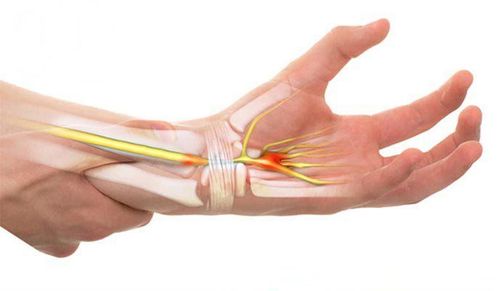This is an automatically translated article.
Posted by Doctor Nguyen Thi Hoai Nam - Department of Surgical Anesthesia, Vinmec Central Park International General HospitalBelow are the effects of surgery, Effects of anesthesia, Nitrous oxide, Propofol, Ketamine on host immune function and metastasis.
1. Effect of surgery on host immune function and metastasis
Surgical resection is often an essential component of cancer management and it offers the best chance for a good prognosis in patients with solid tumors. However, surgical removal of the tumor may inadvertently facilitate metastasis. Even with successful resection with a histologically negative cut margin, “minimal residual disease” remains, as a result of inadvertent dissemination of an 'embolized' tumor during surgery, or previous “micro-metastasis”.
The continued presence of neoplastic cells in the circulation 24 h postoperatively was independently associated with an increased risk of cancer recurrence. The fate of this minimal residual disease is highly dependent on the host's perioperative immunity. However, major surgery is associated with neuroendocrine and cytokine responses to stress, causing transient suppression of cell-mediated immunity during this vulnerable period, when it can be decided whether metastasis will be established or eradicated.
Several animal studies have demonstrated that surgery increases tumor growth and metastasis. For example, abdominal surgery in rats has been shown to increase the number of liver metastases from 15 to 34. Suggested mechanisms by which surgery promotes metastasis include the following factors:
(1) Accidental shedding of tumor cells during surgical manipulation
Peripheral blood and peritoneal fluid were analyzed from patients undergoing surgery for colorectal cancer. Patients with detected tumor cells in the blood/peritoneal fluid after surgery had a significantly shorter survival time (43.9 months) than patients without tumor cells (80.5 months). Some patients with no detectable tumor cells before surgery were found to have tumor cells after surgery, indicating that surgery had separated the neoplastic cells from the primary tumor.

Trong quá trình phẫu thuật có thể vô tình phát tán các tế bào khối u
(2) Cell-mediated immunosuppression
Surgery and the stress response have been shown to suppress cell-mediated immunity, especially NK cell activity in experimental studies and clinical. The degree of immunosuppression depends on the extent of the surgical injury and, therefore, on the intensity of the stress response. Surgical trauma stimulates the hypothalamic-pituitary-adrenal (HPA) axis and sympathetic nervous system. The resulting stress response is characterized by the release of catecholamines and prostaglandins. Laparotomy was associated with significantly increased lung tumor retention (LTR) in mice; however, the combination of β-antagonists and COX inhibitors reduces LTR and restores NK cell function. Interestingly, when this regimen was combined with immunostimulation, a synergistic effect was observed.
(3) Vascular neoplasia
Many promoters of angiogenesis are increased postoperatively, including VEGF and transforming growth factor (TGF) β. Increased VEGF concentrations postoperatively (1385 pg/ml) compared with preoperative (806 pg/ml) were demonstrated in patients with breast cancer. Matrix metalloproteinases (MMPs) are proteolytic enzymes that facilitate metastasis by penetrating the extracellular matrix and basal cell membranes of host cells. Deegan et al in a randomized clinical study, demonstrated that regional anesthesia in combination with propofol reduced the effect of surgery on MMPs compared with balanced general anesthesia (GA) with opioid analgesia. Vascular neoplasia is regulated by a delicate balance of opposition between pro-angiogenic factors (VEGFs, fibroblast growth factors, and TGF-β) and anti-angiogenic factors. (eg angiostatin). Surgery increases vascular neoplasia by promoting:
Increased plasma VEGF levels in rats, surgical stress (laparotomy or mastectomy) or chronic stress significantly increase associated tumor volume to increase VEGF after surgery. Reduced plasma levels of endostatin and angiostatin - endostatin is an endogenous anti-angiogenic mediator, formed by collagen fractionation, and significantly reduced lung cancer metastasis in mice.

Kỹ thuật gây tê vùng được thực hiện trước khi tiến hành phẫu thuật
2. Effects of anesthesia on host immune function and cancer
Experimental evidence of breast cancer infusion in rats shows that ketamine, thiopental, and older volatile anesthetics increase tumor metastasis, in an inverse relationship with NK cell activity. Sevoflurane binds to lymphocyte antigens, interfering with their activity. Isoflurane and sevoflurane have been shown to induce dose-dependent in vitro human T-lymphocyte death. During the activation of the inositol trisphosphate (IP3) mechanism, isoflurane was found to induce death of chicken B lymphocytes in vitro.
A recent review found that volatile anesthetics increase hypoxia-inducible factor (HIF-1α) in neoplastic cells, increase angiogenesis, and are associated with poor patient prognosis. An experimental study of human colon cancer cells showed that isoflurane exposure (30 min at 1.2%) was not associated with in vitro lethality of these cells. Furthermore, some volatile anesthetics alter gene expression in two distinct cancer cell lines, breast carcinoma and neuroblastoma in vitro. On the other hand, another in vitro study demonstrated that human neutrophils prior to treatment with sevoflurane and desflurane inhibited MMP-9 release by approximately 40% (for both agents). As a result, the migration of colon cancer cells is inhibited.
3. Nitrous oxide Nitrous oxide has been associated with a number of immunomodulatory effects in experimental and clinical studies. A follow-up study of a formerly randomized, controlled trial originally designed to evaluate surgical site infections, in which patients undergoing resection for colon cancer were randomized to receive both 65% Nitrous oxide (N2O) and oxygen or 65% nitrogen and oxygen combined with isoflurane and remifentanil. Patients receiving N2O showed no significant difference in cancer recurrence compared with those receiving nitrogen and oxygen (P=0.72).
4. Propofol Propofol significantly reduces the production of prostaglandin E2 by human monocytes in vitro. However, it is not clear whether this effect is related to propofol's suspected antitumor effects. In murine breast cancer, propofol was not associated with an increase in LTR, nor did it inhibit NK cytotoxicity.

Hình ảnh thuốc mê Propofol
5. Ketamine Ketamine has immunomodulatory effects on macrophages, lymphocytes and mast cells in experimental studies. It inhibits cell-mediated maturation of T cells in mice, however, concentrations of ketamine used are two to three times higher than those used in clinical practice. In another study, ketamine (10 mg/kg) inhibited NK cytotoxicity in vitro in rats. Low-dose ketamine (0.15 mg/kg) intravenously 5 min before general anesthesia affects immune function in elective abdominal surgery patients examined in a randomized controlled trial. . Ketamine has been shown to reduce the production of proinflammatory cytokines, IL-6, and TNF-α and inhibit postoperative NK cytotoxicity.
Composition according to A ́. Heaney1 and D. J. Buggy, “Can anaesthetic and analgesic techniques affect cancer recurrence or metastasis?”, British Journal of Anaesthesia 109 (S1): i17–i28 (2012) doi:10.1093/bja/aes421














